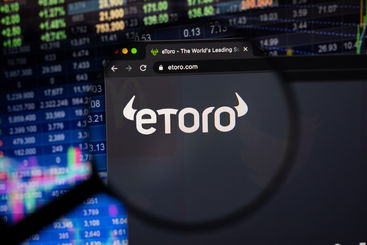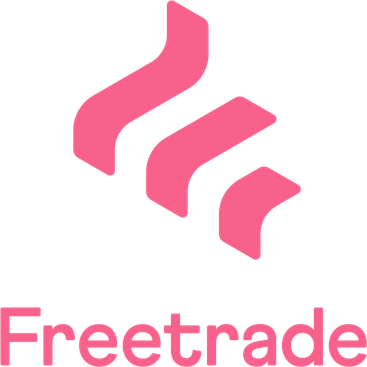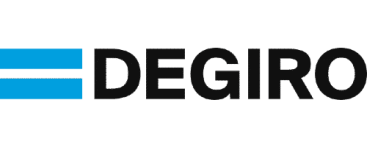The UK is a hotspot for day traders – the country is #1 across Europe with over 300,000 active traders out of 9.8 million worldwide. A whopping 1.8 million tried their chances during the pandemic, fuelled by the boom in online trading platforms and the rapid circulation of content created by ‘investment influencers’. 22% of those reported losing money, while a quarter broke even.
Overall, the success rate is very low (1%), as it requires a lot of commitment, expertise, and, most importantly, the right tools. With so many options available, it may be daunting to find the right broker – read on to find our top 10 day trading platforms for different use cases.
The Top Brokers for Day Trading in the UK
| Name | Score | Visit | Mobile | Support | Security | Launched | Disclaimer | |
|---|---|---|---|---|---|---|---|---|
 | 9.8 | Visitplus500 | Android, iOS | Live Chat, Email, WhatsApp | 2FA, Biometrics | 2008 | CFDs are complex instruments and come with a high risk of losing money rapidly due to leverage. 80% of retail investor accounts lose money when trading CFDs with this provider. You should consider whether you can afford to take the high risk of losing your money. CFD Service. FCA (FRN 509909). | |
 | 8.7 | Visitetoro.com | iOS, Android | Live Chat | 2FA, Biometrics | 2007 | Don’t invest unless you’re prepared to lose all the money you invest. | |
 | 7.6 | Visitfreetrade.io | iOS, Android | Live Chat, Email | 2FA, PIN, Biometrics | 2019 | The value of your investments can go down as well as up and you may get back less than you invest. | |
 | 9.1 | Visitinteractivebrokers.com | Android, iOS, Web App | Email, Phone, Live Chat | 2FA, Biometrics, PIN | 2007 | ||
 | 5IG | 8.9 | Visitig.com | Android, iOS | Email, Phone | 2FA, Biometrics | 1970 | Spread bets and CFDs are complex instruments and come with a high risk of losing money rapidly due to leverage. 70% of retail investor accounts lose money when trading spread bets and CFDs with this provider. You should consider whether you understand how spread bets and CFDs work, and whether you can afford to take the high risk of losing your money. |
 | 8.8 | Visithome.saxo | Android, iOS | Email, Phone | 2FA, Biometrics | 2022 | CFDs are complex instruments and come with a high risk of losing money rapidly due to leverage.74% of retail investor accounts lose money when trading CFDs with this provider. You should consider whether you understand how CFDs, FX or any of our other products work and whether you can afford to take the high risk of losing your money. Losses can exceed deposits on some products. | |
 | 9.1 | Visitbinance.com | Android, iOS | Live Chat, Email | 2FA, Biometrics | 2017 | ||
 | 8.4 | Visittrading212.com | Android, iOS, Web App | Email, Live Chat | 2FA, Biometrics, PIN | 2013 | CFDs are complex instruments and come with a high risk of losing money rapidly due to leverage. 83% of retail investor accounts lose money when trading CFDs with this provider. You should consider whether you understand how CFDs work and whether you can afford to take the high risk of losing your money. | |
 | 8.4 | Visitdegiro.com | Android, iOS, Web App | Email, Phone | 2FA, Biometrics | |||
 | 6.6 | Visitcapital.com | Android, iOS | Live Chat, Email, Phone | 2FA, Biometrics | 2016 | ||
 | 8.7 | Visitfinecobank.com | Android, iOS | Email, Live Chat, Phone | 2FA, Biometrics | 1970 |
Freetrade disclaimer: The value of your investments can go down as well as up and you may get back less than you invest.
Plus500 disclaimer: CFDs are complex instruments and come with a high risk of losing money rapidly due to leverage. 80% of retail investor accounts lose money when trading CFDs with this provider. You should consider whether you can afford to take the high risk of losing your money.
Best Day Trading Platforms Compared & Reviewed
Overall best platform for day trading – eToro
Cheapest day trading platform – Freetrade
Best day trading platform for foreign stocks – Fineco Bank
Best Forex day trading platform – IG
Best day trading platform for research tools – Saxo Markets
Best cryptocurrency day trading platform – Binance
Day trading platform with the best customer support – Trading 212
Best platform for day trading ETFs – Degiro
Best day trading platform for CFDs – Capital.com
Great for mobile day trading – Plus500CFD

Given its no-commission fee policy and transparent pricing, eToro is our pick for the best overall day trading platform. Beside low-cost trading, its trademark CopyTrade feature, along with other social trading functionalities like social feeds, allows users to follow and study other day traders’ patterns and to automatically copy the portfolios of successful traders.
eToro also features a very straightforward and intuitive layout – its web version offers industry-grade charting capabilities powered by ProCharts, and the mobile app provides almost the same functionalities (lacking only some of the charting features), so traders get a good experience on all their devices.

Freetrade combines zero-commission trading with the ability to invest in fractional shares, allowing traders to buy fractional shares, which refer to a unit of a share. Fractional shares will enable you to get exposed to fairly expensive stocks for, quite literally, a fraction of the cost. For those who’d like to dip their toes into US markets, the platform’s FX rate is also a competitive 0.45%.
The online platform is critically acclaimed and has collected awards for four consecutive years. It is very intuitive and relatively easy to navigate, partly due to the lack of versatile functionalities. Its research department is limited to basic charting and doesn’t include a screener. With a solid educational offering and extensive community for social trading, topped with low-cost trading, it is particularly appealing for new traders.
Italy’s Fineco has expanded its operations to the UK, and today it offers a wealth of investment products. In combination with its impressive reach of 26 global markets, it has a particular appeal for traders who seek a diverse array of investment instruments. The platform now offers after-hours trades for Nasdaqfor those who’d like to exploit volatility following stock market driver announcements.
The only catch are the fixed commissions charged per trade: The fees vary by UK, US, and international shares, and for a day trader, they may pile up quite quickly. So it’s a better choice for those confident that their profits will outpace the commission charges they pay.
Its platform PowerDesk is packed with advanced tools and is highly customisable, including a robust screener and charting feature, which allows you to include several charts in a single screen to analyse multiple markets at a glance. It's worth noting that the platform is designed for seasoned traders and comes with a slight learning curve.
IG's platform combines an award-winning web version with tight spreads and overall low-cost services. It also supports a highly-rated mobile app, allowing day traders to access their portfolios and place trades while on the move.
Furthermore, the clear and fast charts provide deep analysis with the ProRealTime tool, helping you identify day trading opportunities through research before making trades. Traders of all experience levels will also appreciate the friendly and knowledgeable 24-hour customer support available through various channels, including via phone and email.
Denmark’s Saxo Markets is revered for the variety of assets it includes among its offering that stretches from securities like stocks and bonds to leveraged products like options, futures, and CFDs. The platform’s research and analysis tools are among its greatest assets: The charting tool appeals to both seasoned and intermediate traders thanks to its ease of use, and includes up to 40 technical indicators.
The research opportunities are particularly interesting. The platform offers high-quality stock market analysis reports and trading ideas curated by their in-house team of analysts SaxoStrats. Reports include asset-specific analysis, global market updates, price data, and educational materials.
SaxoTraderPro users can also access the Level II order book, as well as real-time time and sales data, but – you guessed it – for an additional fee. On a related note, any user of SaxoTraderGo (a stock trading platform that has fewer features) can switch to SaxoTraderPro, which is geared towards seasoned traders. It allows access to features like algo trading and advanced trade tickets besides the aforementioned subscription-based capabilities.

Despite its legal troubles across the pond and less-than-ideal customer service, Binance continues to be an excellent cryptocurrency exchange for day trading due to its unbeatable low-cost trading and versatility in its trading mechanism. Traders enjoy a 0% fee on selected fiat and stablecoin BTC pairings, and the holders of its native coin BNB enjoy a further 25% fee reduction.
The exchange offers a variety of order types, including stop market orders, trailing stop orders, post-only orders, and one-cancels-the-other orders, on top of several trading options besides spot trading, including margin trading and peer-to-peer trading. Due to the sheer number of moving parts, the best stock trading platform comes with a slight learning curve, but at its core, it's appealing to intermediate and seasoned traders alike.
Trading 212 is yet another new-generation brokerage that comes with impeccable digital products and low-cost trading. In that sense, its offerings largely overlap with Freetrade: You can buy, hold, and sell stocks and ETFsfree of charge and use a free-of-charge ISA account. Both lack a screener but complement their services with a diverse community of traders for social trading – but Trading 212 tops their offerings with CFDs, and, most notably, unparalleled customer service.
Customer satisfaction is getting increasingly difficult to gain across the industry, and online brokers that don’t belong to legacy investing companies are usually not known for good customer service. Yet, Trading 212 collects a very high 4.6/5 from Trustpilot, where numerous reports of complaints are being solved within hours. The support is prompt to answer queries on the review aggregator with personalised messages, and comes across as respectful and knowledgeable. Thanks to this, Trading 212 is an excellent choice for those prioritising expert help when using a digital platform.

Stocks usually get the spotlight for day traders, but liquid ETFs are also quite suitable for day trading, and Degiro is among the best choices for a platform. Much like FinecoBank, Degiro also offers unparalleled exposure to global markets: 22 European, four North American, four Asian, and up to 19 exchanges for ETFs. You are looking at numerous opportunities to have a diverse portfolio. The online trading platform also waives commission fees on selected ETFs from around the world and includes a robust screener with which you can filter out funds by expense ratio, region, and ESG score.
Yet, the remainder of its research and analysis arsenal falls short in comparison – which isn’t surprising for a budget platform. Its charting capabilities are basic, lacking some fundamentals like price alerts. It does, though, cover the very minimum, including real-time streaming quotes (for no additional fee), a live news feed, and multiple order types.
As a specialised broker, Capital.com has one of the most extensive CFD selections available across the industry. Traders are exposed to over 3,700 markets and can choose from shares, indices, Forex, and commodities CFDs with varying degrees of leverage. The platform fully integrates with the industry-grade product TradingView, with which you can access advanced charting capabilities with the ability to include up to 75 technical indicators and access top-notch execution quality.
The outfit has several mobile applications which are specifically designed for different use cases: spread-betting, CFD trading, and investment education. Investmate, Capital’s version of the trading academy is a testament to its commitment to client improvement, along with its intuitive platform. That being said, CFDs are incredibly complex and risky instruments, with over 76% losing money when trading CFDs – it’s essential to acknowledge that and put the time in for proper education and testing through a demo account, for which Capital.com is an excellent choice.

Plus500's versatile push notifications can elevate your mobile trading significantly.
Besides the generic price alerts, you can set notifications to be sent out when prices move in either direction (which can help massively with your CFD trades), or when the percentage of buyers and sellers reach a certain point - a unique tool Plus500 developed.
Besides these, the platform lacks some advanced features, and yet, much like Freetrade, its lack of moving parts results in it being straightforward and easy to use. Trading instruments stretch from indices to Forex (traded with CFDs only), and its analysis tools include robust charting with up to 100 technical indicators. Besides being regulated by the FCA, the outfit is also listed on LSE and therefore required to disclose all its financial information, making it a secure option.
Day Trading Explained
Day trading is the act of buying and selling securities within the same day in an attempt to exploit price movements that occur throughout the day. The process involves placing trades in a small window in a bid to obtain smaller but frequent returns. Stocks and currencies are the most commonly day-traded securities, with volatile assets bringing more investment opportunities.
Most day traders are well-versed in the technicalities of trading and have a large pool of funds to invest. It is also common to use leverage to increase the volume of investments, which adds another layer of risk as well as a chance to pump up returns.
Day trading can turn out to be extremely profitable…
Besides the seasoned traders and those who day trade for a living, usually employed by hedge funds or other financial institutions, day trading is attractive to many novice investors mostly due to quick returns. Day traders deal with very small windows, as tiny as minutes or hours, to place trades. This means that their goals are short-termed, and they may have all realised within hours.
As positions tend to stay open for small windows, day trading also eliminates the overnight/weekend risk exposure. High-volume traders can also access higher leverages and lowered trading fees.
…but only for a small number of retail investors.
Yet, very few can actually close the shop, having achieved all or most of their objectives. Studies show that a whopping 97% of day traders lose money over time, while only 1% are profitable. That is because it is simply too difficult, especially for retail traders. Those who day trade for a living have the luxury of a large pool of capital, expensive analytical software, and the right technical expertise.
Dealing with highly volatile securities that day traders normally take advantage of requires in-depth technical analysis skills, stock market acumen, and incredible emotional resilience to keep their heads cool during the most stressful moments – which leaves a very limited pool of people who can power through. Many amateur traders jump into day trading without understanding the risks involved and the commitment required, they invest in cheap stocks under £1-5 with very little volatility and their losses pile up quite quickly.
Higher leverage also proves to be a double-edged sword. While trading on margin magnifies the returns, it can also inflate the losses unless tight stop-loss measures are applied.
Picking a Good Broker for Day Trading: How Do We Choose?
The choice of a broker is crucial for day traders – it can (almost literally) make or break the whole experience. We have considered the following factors when curating our list of the top platforms for day trading.
Regulation and safety
The UK’s Financial Conduct Authority (FCA) authorise and regulates the UK trading platforms within the country. Regulated firms disclose this information along with a unique license number on their website. To make sure, you can run through the number or simply the firm name on the FCA’s register. On the ‘How are customers protected?’ section, you can view whether your funds may be eligible for the Financial Services Compensation Scheme or whether you can file a claim against the firm through the Financial Ombudsman Service.
As per the regulations, the client funds must be segregated from company accounts – this ensures that client monies are protected in the event that the firm goes insolvent. While this coverage is crucial, it's wise to seek out investment platforms with consistent track records of profitability and a substantial amount of assets under management.
Besides adherence to regulations, it’s important for applications to employ industry-standard security measures like 2-factor authentication or SSL encryption.
Platform reliability and usability
The quality of the best online trading platform is a primary consideration for day traders, especially for those who place trades manually instead of relying on an algorithm. A platform’s stability may influence the execution speed and cause slippage. Before opting for a service, advanced traders should test out how long the best online trading platform takes to execute an order, how quickly complex orders can be set out and placed, and assess whether there’s any downtime or bugs by using a demo account.
A fully functional mobile application that supports every feature included within the platform, would be ideal for day traders to stay on top of their trades while on the go.
Research and analysis tools
Day traders rely heavily on research and analysis tools to make informed decisions. Some of the top features of these trading tools include the following:
Real-time market data is a day trader’s bread and butter, and it usually comes with an additional fee. Prices move rapidly and constantly, so a reliable and instantaneous service is a crucial addition to a trader’s arsenal to make informed decisions at all times.
Advanced charting is crucial as day traders rely on price action rather than fundamentals analysis. Candlestick charts typically reign supreme in technical analysis, and the best UK trading platforms offer access to popular industry-grade charting tools like TradingView or TradeStation.
Customer support
Best day trading platforms tend to have reachable and knowledgeable customer service that can support traders at times of crisis – which can be a technical problem, crash, or any failure that may require you to place broker-assisted trade. Ideally, a brokerage should assign dedicated account managers to active high-volume traders. At a minimum, there should be multiple channels, most importantly live channels like a phone line or live chat function, readily available for users.
Trading fees
The most common fees concerning day traders include the following:
Commission – Refers to the trading fee, which is typically charged as a percentage of the value of a trade. Following the success of Robinhood, many brokerages now introduced commission-free trading.
Margin Rates – Refer to the cost of borrowing money from your trading platform. It is charged as an interest when you purchase securities on margin and vary by the brokerage.
Deposit Fee – Is charged when funding the day trading account and varies based on the deposit method.
Commissions are the most significant fee that brokers deal with as the commissions of a high-volume trader can quickly pile up after a day – but this can be easily avoided by opting for a zero-commission service like eToro or Freetrade.
The catch is that many brokerages that can waive commissions make money in different ways, most notably through payment for order flow, which is a form of reimbursement brokerages receive for directing a trade execution to a particular exchange. This jeopardises the quality of trade execution.
How much money is needed to start day trading?
While the US strictly requires traders placing more than four trades or more in a week on a margin account to have at least $25,000 in their balance, day trading in the UK has no such strings attached. Depending on the account minimum requirements and the price of the stocks you are looking at, it’s possible to start day trading with only £100.
But should you? Perhaps not. It's not generally advised to start with such small capital. It can limit your ability to manage risk because you won't have enough funds to spread your investments across different assets, recover from your losses, and possibly result in very insignificant gains.
Is Day Trading Worth it?
Day trading could be a viable venture to generate profit when using a solid strategy with enough capital to absorb financial setbacks. It’s a possible choice for traders who enjoy a faster form of trading and are willing to put in the work: it is incredibly time-consuming due to the research and data crunching required to spot good trades, along with the daily micromanaging to ensure timely entry and exits.
As mentioned above, there are numerous reasons why the success rate for day trading is very low. Nevertheless, hope springs eternal – by equipping oneself with the best day trading platforms available in the UK, the proper education, and a grounded understanding of the risks, it may be possible to turn a profit.











.jpg)